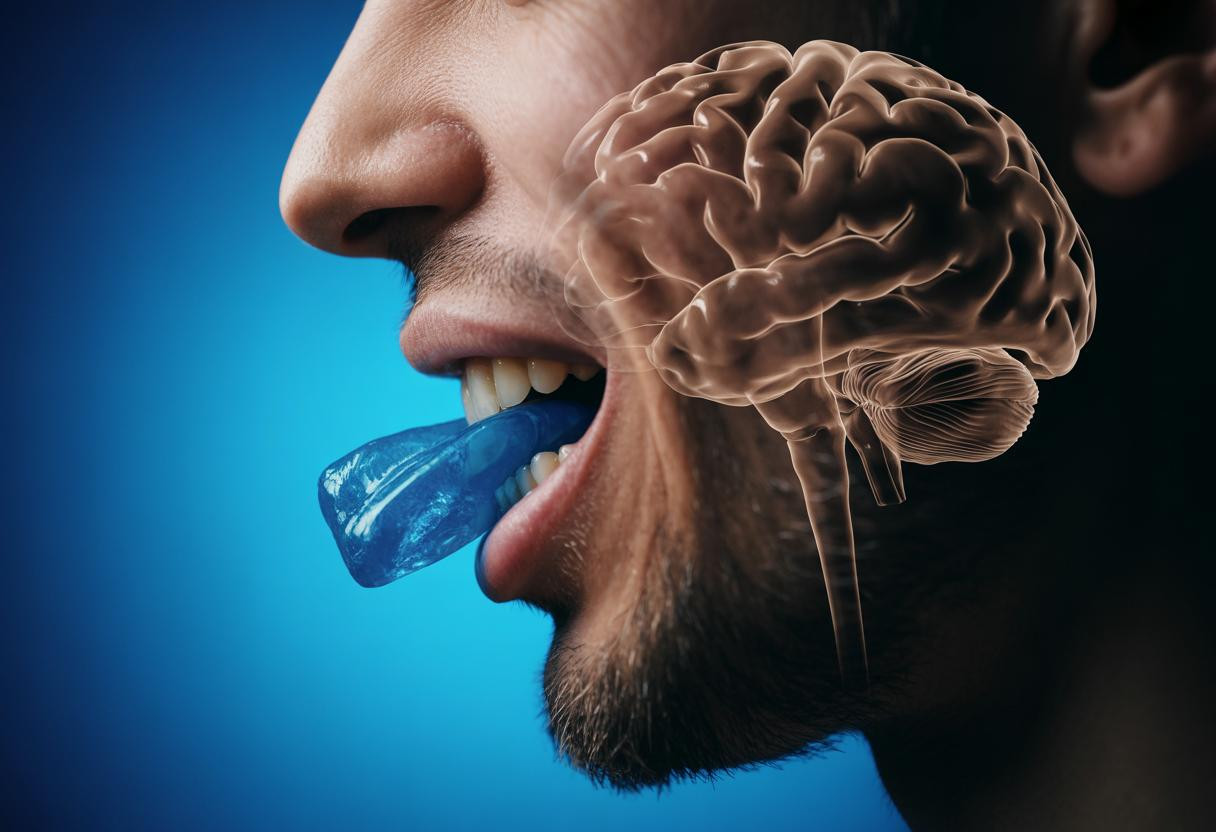That innocent piece of sugar-free gum you’ve been chewing might be quietly sabotaging your memory and focus in ways researchers are only beginning to understand. Recent groundbreaking studies have revealed that aspartame, the artificial sweetener found in most sugar-free chewing gums, creates measurable cognitive deficits that can persist across generations through epigenetic changes.
The hidden sweetener affecting millions daily
Aspartame lurks in over 6,000 products worldwide, from diet sodas to sugar-free gum, consumed by millions who believe they’re making healthier choices. This artificial sweetener, approved since the 1980s, has maintained its “generally recognized as safe” status despite mounting evidence of concerning neurological effects.
What makes this particularly alarming is that most people have no idea how much aspartame they consume daily. A single piece of sugar-free gum contains approximately 6-8 milligrams, while a can of diet soda packs 125 milligrams. For frequent users, these amounts quickly accumulate toward concerning levels.
Breakthrough research reveals startling cognitive impacts
Memory formation takes a devastating hit
Florida State University researchers discovered that mice exposed to aspartame at just 0.03% of their diet showed significant spatial learning and working memory deficits. Most shocking? These cognitive impairments weren’t limited to the exposed animals—they passed to their offspring through epigenetic modifications in sperm, creating a transgenerational cycle of cognitive decline.
The study used doses well below FDA safety limits, suggesting that even “safe” consumption levels may trigger neurological changes. This challenges decades of regulatory assumptions about artificial sweeteners and their impact on mental health.
Brain chemistry disruption at the molecular level
Aspartame fundamentally alters the brain’s excitation-inhibition balance by disrupting glutamatergic and GABAergic signaling in the amygdala. This creates a neurochemical storm that impairs synaptic plasticity—the foundation of learning and memory formation.
When aspartame breaks down, it produces phenylalanine, which competes with tryptophan for brain access. This interference disrupts serotonin synthesis, affecting both mood and cognitive function—explaining why some people report brain fog after consuming artificial sweeteners.
Why current safety standards may be dangerously outdated
The FDA’s acceptable daily intake of 50 mg/kg body weight was established using outdated research methods that didn’t account for epigenetic effects or cumulative exposure patterns. For a 150-pound adult, this translates to roughly 3,400 milligrams daily—but emerging evidence suggests problems occur at much lower doses.
Vulnerable populations face heightened risks. People with existing neurological conditions, those over 65, and individuals with phenylketonuria may experience amplified cognitive effects. Additionally, research on how certain medications affect cognitive function and dementia risk suggests that combining aspartame with other substances could compound neurological vulnerabilities.
Immediate steps to protect your cognitive health
Smart alternatives that actually work
Replace aspartame-containing gum with products sweetened by stevia, xylitol, or erythritol. These alternatives provide sweetness without the neurological interference, and xylitol actually supports dental health while you chew.
Track your hidden exposure
Most people underestimate their aspartame intake by 40-60%. Check labels on medications, protein powders, sugar-free desserts, and flavored waters. Even seemingly healthy products like sugar-free yogurt often contain significant amounts.
The 48-hour reset protocol
Clinical case reports show that cognitive improvements can begin within 48 hours of eliminating aspartame. One documented case involved complete resolution of memory issues after discontinuing aspartame-containing chewing gum, suggesting the effects may be more reversible than previously thought.
What this means for your daily routine
The implications extend beyond individual health choices. Just as large-scale health studies revealing unexpected risks from common dietary choices have reshaped our understanding of nutrition, this aspartame research demands a fundamental reassessment of artificial sweetener safety.
Your brain deserves better than a cognitive gamble disguised as a healthy choice. The next time you reach for that sugar-free gum, remember that protecting your memory and focus might be as simple as choosing a different sweetener—one that won’t compromise your mental clarity for generations to come.
